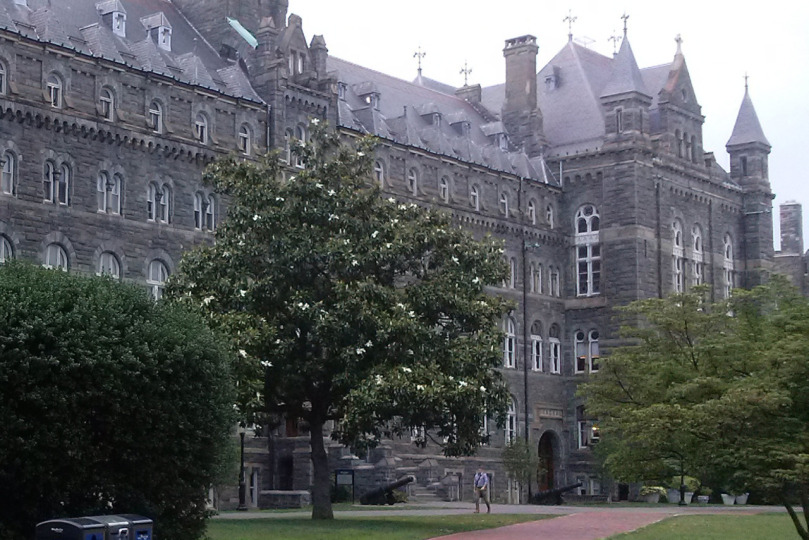On September, 8th the HSE St Petersburg’s History Department opened a new Summer School on “The Topography of Imperial Power: the Political Space of St. Petersburg” . (The Academic Director of the school is Dr. Dietmar Wulff- long-term Associate Professor of DAAD and Associate Professor of the Department of History, HSE SPb.).
News
Associate Professors at the Department of Foreign Languages Vera Meniailo and Natalia Tuliakova took part in the conference ‘Longing and Belonging: European Network of Comparative Literary Studies 6th Biennail Congress’ that was held on August 24-28 in Dublin and Galway, Ireland.
On August 3rd-8th 2015, a working group from the International Research Project ‘Comparative Historical Studies of Empire and Nationalism’ took part in the ICCEES Congress in Japan.
The first part of the seminar ‘Culture of Historical Memory: World War II and Political Regimes of the 20th Century’, dedicated to the politics of history and memory of World War II in Germany, controversies and intersections between public, family and private memories of the war was held at Humboldt University in Berlin on July 6-12.
A one-month-long exchange for students from the Centre for Russian, European, and Eurasian Studies at Birmingham University (UK) in HSE has come to a close. They share their impressions.
On June 15 the new international laboratory, Centre for Health Economics, Management and Policy, was opened at HSE in St. Petersburg. The head of the laboratory Christopher Gerry tells us about the laboratory, its plans and prospects.
From June 30 – July 3, 2015, Julia Lajus, Alexandra Bekasova, Marina Loskutova, Margarita Dadykina, and Elena Kochetkova, researchers from the Department of History and Center of Historical Studies, took part in the 8th Conference of the European Society for Environmental History. The event took place at University of Versailles-Saint-Quentin-en-Yvelines in France.
Vera Meniailo and Natalia Tuliakova, associate professors at the Department of Foreign Languages, spoke at the Second International Conference on Teaching English for Specific Purposes and New Language Learning Technologies, which took place in Niš, Serbia, from May 22 – 24, 2015.
Vladimir Uspensky, Senior Lecturer at the Department of History, has taken part in an international conference on ‘The [Not So] Discreet Charm of Clientelism: Comparative Perspectives on Patron-Client Relations’, which took place on July 19-20, 2015, in Perm. The event was organized by the Perm State University Centre for Comparative History and Political Studies.

